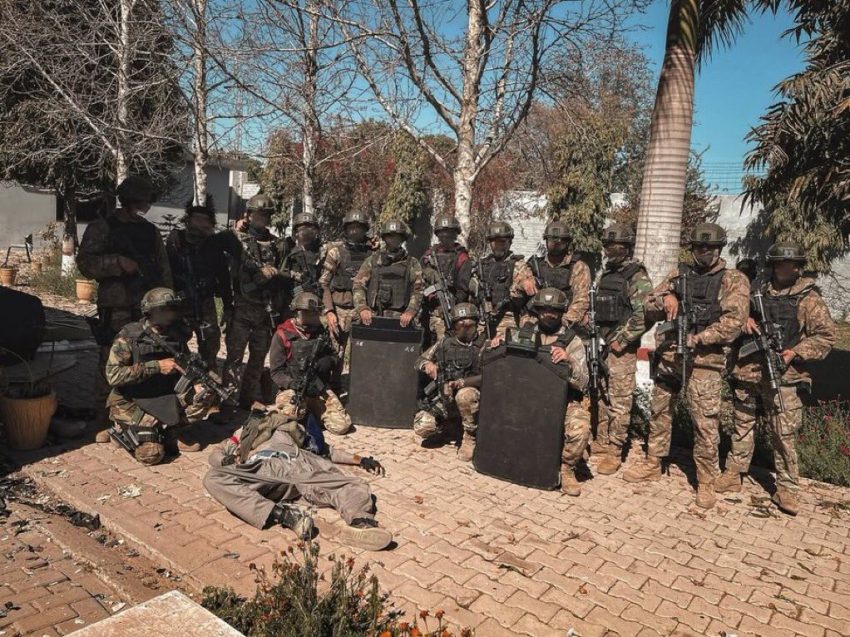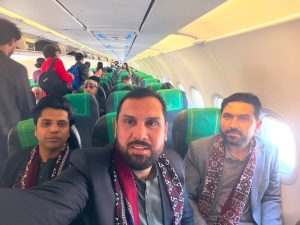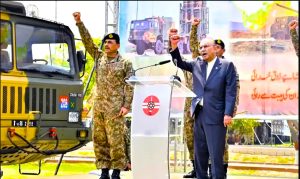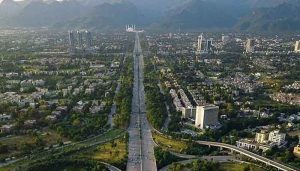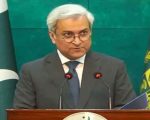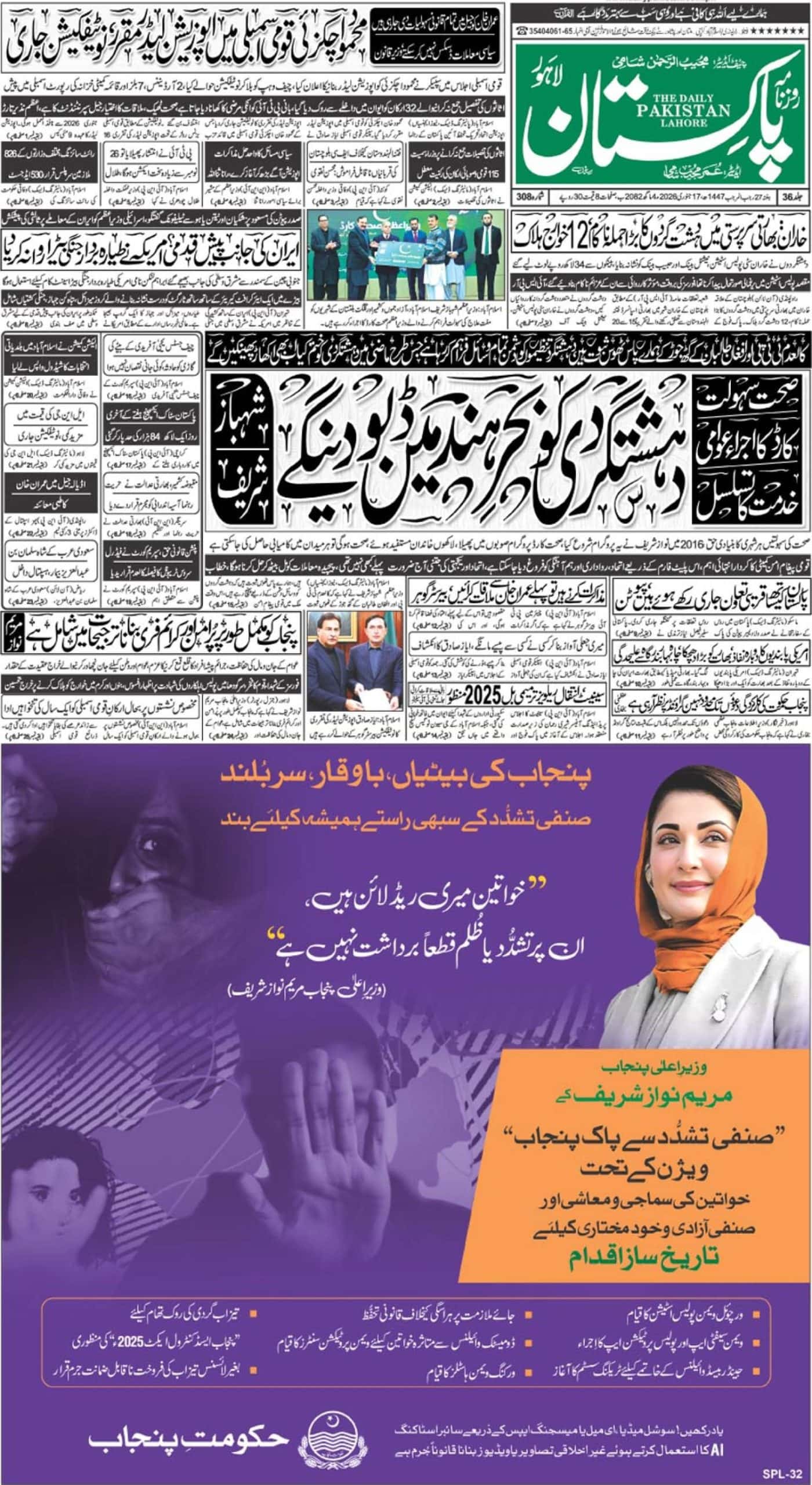The November 11 attack on Wana Cadet College in South Waziristan was not merely an act of terror but a calculated strike against Pakistan’s aspirations for progress and learning. The assailants targeted an institution dedicated to shaping future leaders — 525 young cadets preparing for lives of honour and discipline. Yet, the swift and composed response of Pakistan’s security forces affirmed that the nation’s determination to defend its youth and its ideals remains resolute.
Tuesday morning, early hours: 5 terrorists from the banned Tehreek-e-Taliban Pakistan, aka Fitna Al Khawarij — including a suicide bomber — launched an attack on Wana Cadet College in South Waziristan. Within moments, Pakistan’s security forces moved in, carrying out a precise and coordinated operation that swiftly neutralised the threat. Over 650 students and staff were safely evacuated, and not a single life was lost among the cadets or faculty.
Once the area was cleared of explosives, officials confirmed that the college remained intact, spared from further harm. This demonstrates the professionalism of the Pakistan Army, with not a single student lost.
In operational terms, it was a model counter-terror response-contained, deliberate, and executed with the highest regard for civilian safety. However, from a strategic perspective, it was something more—a reaffirmation of the state’s control over territories once considered vulnerable to the influence of the TTP. The operation showcased the maturity of Pakistan’s capabilities against terrorism and its steady evolution from reactive defence to pre-emptive precision.
What makes this episode particularly significant is the symbolism involved. Wana Cadet College is not just a place of learning; it represents the return of stability, opportunity, and the state’s presence to the long-conflict-scarred region. Its existence embodies the social reintegration of the tribal belt into Pakistan’s national fabric-a transformation built on the promise of education and equality. For terrorists who survive on narratives of division, such symbols are simply intolerable.
The TTP’s targeting of the college is a pointer to their abiding ideological bankruptcy. They claim to act in the name of faith, yet their actions are in direct contradiction to the principles of Islam, which place the pursuit of knowledge amongst the highest virtues and forbid the killing of innocents. In this sense, the campaign of terror is not only a security challenge but also a profound moral deviation that must be countered both by force and with clarity of narrative.
For Pakistan’s policymakers and scholars of religion alike, the message cannot be clearer: that this war against terror can neither start nor end with just the bullets. It needs to be fought in classrooms, mosques, and cyber space-where young minds are most vulnerable to manipulation. The TTP’s ideological distortion-a perverse misuse of religion to justify violence-must be exposed as a betrayal of both faith and humanity.
The forensic evidence gathered after the Wana operation underscores a reality Pakistan has been warning about for years — that many acts of terrorism on our soil are being directed from across the border. Communication logs and mobile data retrieved from the attackers revealed clear links with handlers based in Afghanistan, where remnants of the TTP are once again trying to regroup. Adding to the concern, several social media accounts operating from Afghan territory were seen celebrating the attack, a grim reminder that despite repeated diplomatic outreach, cross-border support for such elements continues to pose a serious threat.
The pattern has persistently been brought to the notice of the international community by Pakistan’s security community. Pakistan paid an enormous price in lives and resources for razing terrorist infrastructure within its borders; now, it requires sustained regional cooperation so that no external space becomes a launching pad for attacks against its people. Therefore, diplomatic engagement, intelligence collaboration, and cross-border accountability must remain top priorities.
Even as the state grapples with these strategic and security challenges, we must not lose sight of the moral truth at the heart of it all: the attack on Wana Cadet College was more than an act of terror — it was an assault on Pakistan’s very spirit, on its schools, its children, and its hope for a brighter future. That is why the triumph of the security forces carries such profound meaning across the country. In saving those young cadets, they protected more than lives — they defended the very idea of Pakistan itself: a nation built on learning, discipline, and unity.
A young cadet rescued from the college summed up the national mood when he succinctly said, “The terrorists wanted to deprive us of education, but they failed again and will always fail.” His words epitomise the overall conflict. The real victory indeed is not in neutralising the attackers themselves, but in how the institutions they attack continue to thrive.
Far from over, the war on terrorism rages in Pakistan. However, the Wana operation certainly sends a loud and clear message: deterrence is greater than ever. For every element of fear that kept them in power, there was courage in the face of the atrocities they committed. An agenda of destruction versus discipline and hope. In South Waziristan, where for decades the only colour that seemed to be seen was the colour of blood and sweat, if not tears, the most potent response to such retrospectives is the cadets going back safely into their classrooms. Today the Wana Cadet College stands as a site not of tragedy but of national resilience-a reminder that no act of terrorism, no matter how frequent, has been able or will ever be able to take away a nation’s will to learn, build, and endure. Long live Pakistan.

